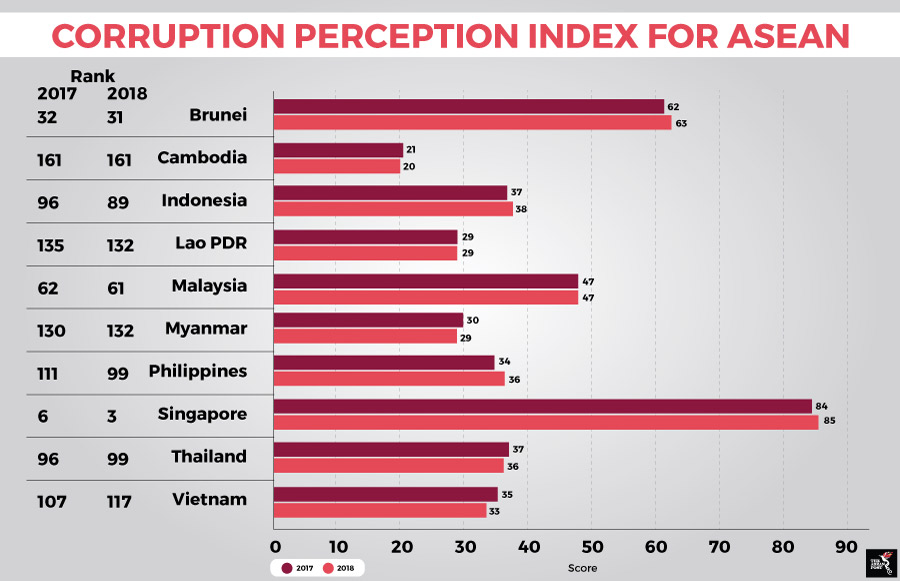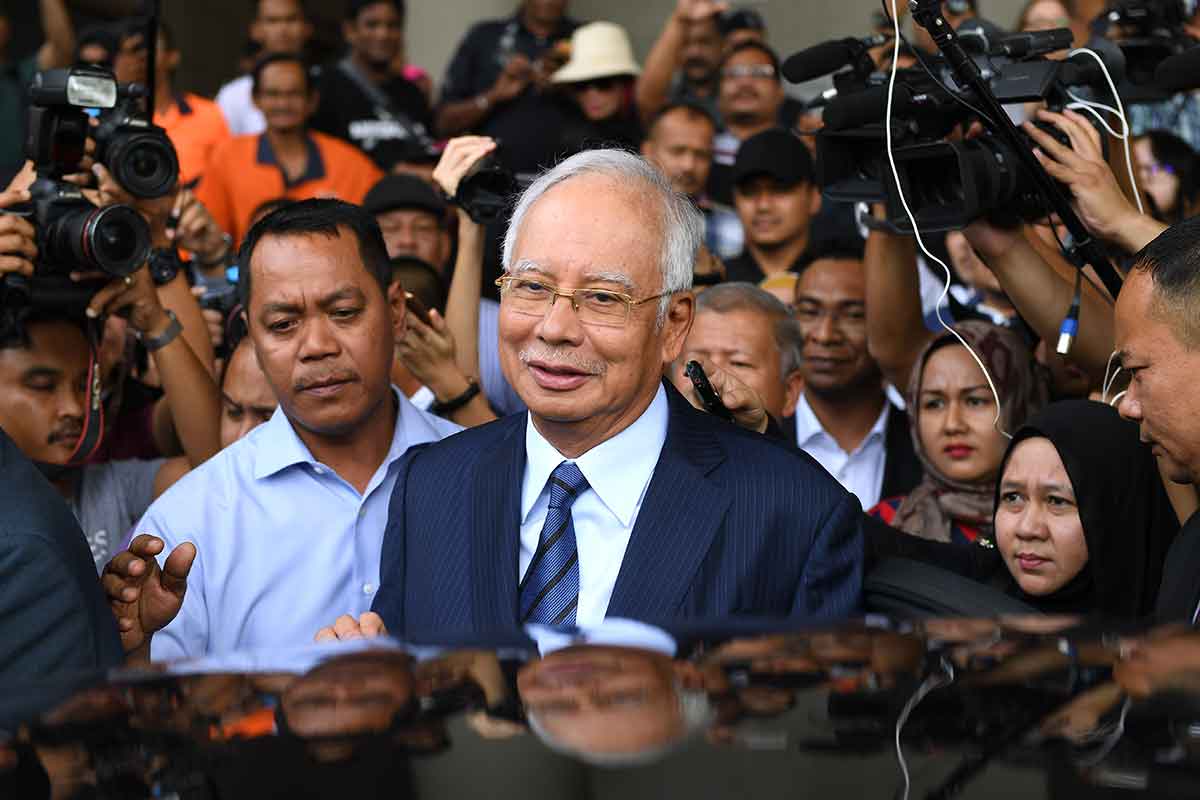Transparency International recently released the results of its Corruption Perceptions Index (CPI) 2018, which looks at the perception of corruption in 180 countries. The index is often highly anticipated and is used as a drawing point to gauge a country’s (or even a region’s) level of corruption.
The index is calculated using 13 different data sources that provide perceptions of public sector corruption from business people as well as country experts. These include the African Development Bank Country Policy and Institutional Assessment, the World Bank Country Policy and Institutional Assessment, the World Economic Forum Executive Opinion Survey and the World Justice Project Rule of Law Index Expert Survey.
Transparency International said its CPI for 2018 showed that more than two-thirds of countries in the world scored below 50 on its scale where 100 is very clean and zero is very corrupt.
Across the globe, Denmark and New Zealand traded for first and second place, and Somalia maintained its last spot. As for ASEAN, some member states remained where they were previously, some moved up the ranking and some went further down.
Weak democracy, high corruption
In a cross-analysis of its survey with global democracy data, Transparency International said it found a link between corruption and the health of a democracy. Full democracies scored an average of 75 on the CPI, flawed democracies averaged 49, and autocratic regimes averaged 30.
It noted that Turkey had dropped nine points over the past five years, to 41 in 2018. Transparency International’s report then cited Freedom House's annual democracy survey, noting that Turkey has been downgraded from “partly free” to “not free.”
“Our research makes a clear link between having a healthy democracy and successfully fighting public sector corruption,” said Delia Ferreira Rubio, the head of Transparency International.
“Corruption is much more likely to flourish where democratic foundations are weak and, as we have seen in many countries, where undemocratic and populist politicians can use it to their advantage.”
 Source: Transparency International
Source: Transparency International
Decline in the region
The most significant decline in the region was seen in Vietnam which fell by two points as opposed to other ASEAN nations that dropped in the rankings - Cambodia, Myanmar and Thailand – which dropped one point.
Transparency International acknowledged that Vietnam had taken a strong approach towards prosecution and punishment of corrupt individuals over the last few years. However, it added that this was not enough to fight corruption effectively.
“Strong enforcement efforts are only part of a comprehensive and effective anti-corruption strategy. In addition, weak democratic institutions and few political rights cast serious doubts on the fairness of the arrests and prosecutions in the country.”
Transparency International hailed Malaysia as one of the countries to watch this year, most obviously following its landmark election results in 2018. It said that Malaysia had made significant strides since last year’s election, including key arrests of corrupt officials.
“In all four countries (which included the Maldives, Pakistan and India), massive public mobilisation against corruption coupled with significant political participation and voter turnout resulted in new governments that promise extensive anti-corruption reforms.
“However, despite these encouraging developments, we are yet to see how this translates into solid action, especially when it comes to combatting elusive forms of grand corruption.”
Malaysia is still currently embroiled in an ongoing investigation into the controversial 1Malaysia Development Berhad (1MDB) scandal. The scandal is estimated at more than US$4.5 billion and involves political leaders at the highest levels of government, including former prime minister Najib Razak and continues to reveal a trail of allegedly illegal financial transactions.
ASEAN member countries which managed to improve their scores included Brunei, Singapore, the Philippines, and Indonesia. It would be especially interesting to take a more in-depth look into Indonesia considering the looming election. This is also true for Thailand, which lost one point.
On the whole, ASEAN’s score has not deviated much in 2018 compared to the previous year and while countries like Singapore maintain high scores in the index, countries like Cambodia continue to struggle. The implications of this will be saved for a later date.
Related articles:
